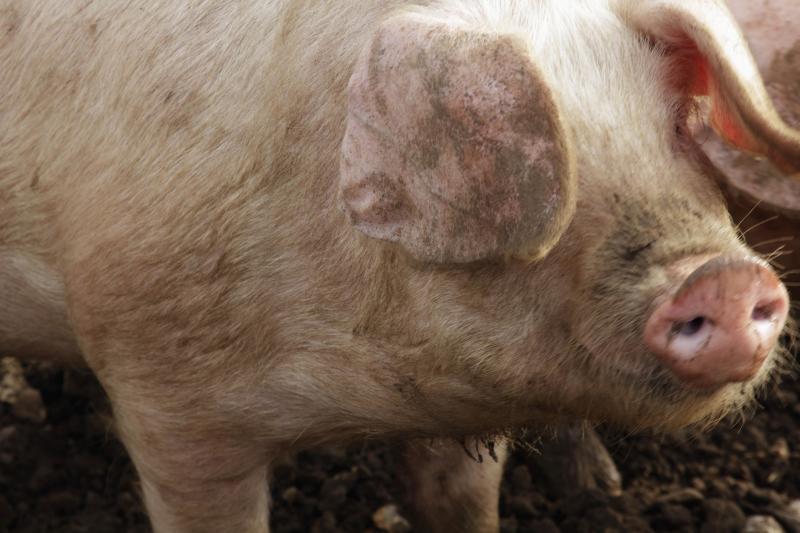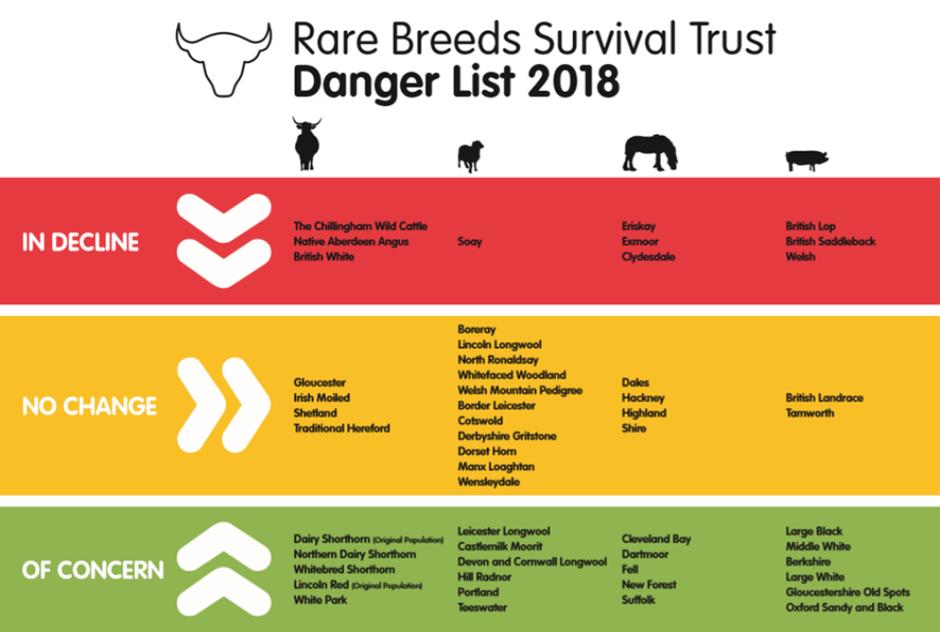
A report has been released that sets out current state of the UK’s rarest breeds at risk of extinction, which includes Vaynol cows and British Lop pigs.
The Rare Breeds Survival Trust (RBST), the only UK charity dedicated to preserving and promoting rare breed farm animals and horses, have released the 2018 Rare Breeds Danger List report.
Hitting the highest danger level of breeds most likely to die out is the Vaynol cow breed, with only 12 breeding females as of 2018.
Cleveland Bay Horse comes second as just 64 breeding females. The following are then listed: Suffolk Horse – 80; British Landrace pigs – 138; British Lop pigs – 16.
The report states that UK rare breed animal numbers are at crisis point, with animals that have been around since Viking times in danger of being lost from the British landscape forever.
Of the types of animals most at risk in 2018, pigs (British Landrace and British Lop) and horses (Suffolk Horse and Cleveland Bay Horse) are all in the danger zone.
'Drive demand'
Tom Beeston, CEO of the Rare Breeds Survival Trust said the British public need to eat more rare breed meat to drive up demand for the animals.
“These rare breed animals are going to end up as dead as a Dodo unless their numbers increase dramatically,” Mr Beeston explained.

“With the publication of the Danger Watchlist, we are calling on Government bodies and consumers to support our work.
“We need more than £10m in the next decade to pay for our Gene Bank, where genetic material is stored so that we can recreate a breed, a bit like the film Jurassic Park. And although it might sound odd we want more people to eat rare breed meat to drive demand for the animals.
Mr Beeston added: “These animals are beautiful to look at, uniquely British and deserve to be protected for future generations.”
'Extreme danger'
The UKs appetite for bacon continues to rise with 87 million breakfasts last year. Roast pork for Sunday lunch and ham for sandwiches, lean pork is a popular consumer choice.
However, the demand for pork over the past few decades has led to intensive production of pigs for lean meat with little waste.
Rare breed pigs like the Gloucestershire Old Spots and Tamworth do feature on gastro-pub menus, and the Rare Breed Survival Trust believe it is important for consumers to ask for these rare breed animals when they go out to eat.
However, the British Lop and British Landrace pigs are in “extreme danger”.
The RBST said: “Pigs produce large litters of up to 12 piglets, but the problem is that celebrity chefs and restaurant owners haven’t heard of these rare breeds so there is no market for them. RBST is working to change this.”
'Rare breed beef'
Rare breed beef is becoming of greater interest to chefs and restaurants. Highland Cows used to be on the danger list in the 1970s, but and are now considered great meat and popular with consumers.
The report says that counter-intuitively; this is a good thing, because the more people that eat rare breed meat, the greater the demand and the more animals will be bred.
Of greatest concern are Vaynol due to the critically low numbers, with British White cattle also being hit hard with a significant decrease since last year.
The report concludes that some breeds will be “lost forever” unless funding is found from the government
